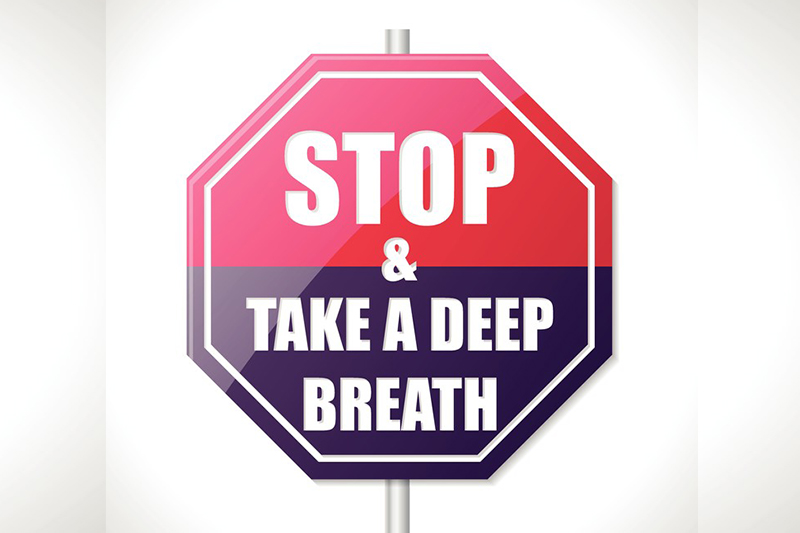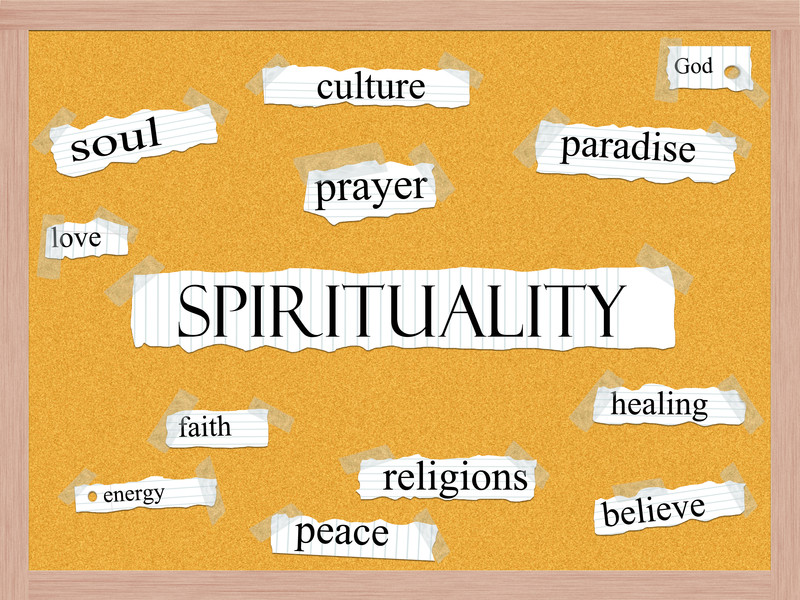
In 1931, Dr. Albert Schweitzer was on to something when he told the world that “Pain is a more terrible lord of mankind than even death itself.” He knew then what millions of people know and experience right now, which is that pain is not only debilitating, but for many people it makes living nearly unbearable at times. While pain is something that we have all felt from time to time, there are many people around the world who suffer from it on a continuous basis, thus taking a lot of the thrill of living out of their experience.
In fact, according to the Institute of Medicine, there are around 100 million adult Americans who suffer from chronic pain. Not only does this bring a lot of misery to those who are suffering, but there is also a high financial cost to the country, with the loss of productivity and medical treatment adding up to around $635 billion per year.
What many of the millions of people who suffer from chronic pain don’t realize, along with those who help care for them, is that there is a substantial correlation between stress and pain. The more we understand about the causal connection that stress has with pain, the more we can begin to see effective ways to manage the chronic pain that people experience.
Chronic Pain and Stress
According to the National Institutes on Health (NIH), chronic pain is the most common reason that people in the country access the health care system. It is also considered the leading cause of long-term disability in the country. Pain, as we all have experienced, is a nervous system response that lets you know you have been injured or there is something wrong.
Chronic pain is different in that, according to the NIH, those pain signals go on for a long period of time, ranging from weeks to years. Some people know their origin of their pain, such as an accident, injury, or disease, while others have no idea where or why the pain first originated. Whether people are aware of it or not, there is a big causal connection between the chronic pain someone is feeling and the stress in their life.
Some people are aware of the stress they have in their lives. They can easily identify what it is that makes them feel stress, but millions of others have been unable to pinpoint what it is, or be honest with themselves about the origin of it. There are a variety of things that research shows is stressing people out, including their own poor health. Identifying the stress factor is a major component in being able to manage it, and thus manage the chronic stress, too.
While acute stress is the most common, it is experienced in short dosages, such as right before you go to give a speech. Episodic acute stress is typical of someone who is considered a “worry wart,” or spends a lot of time worrying about everything, and often unnecessarily. Chronic stress is that which is there day after day. It’s the kind that people get used to having in their life, thus they are often no longer able to identify it. The chronic stress is debilitating, because it takes a heavy toll on one’s mind, body, and have a negative impact on those around the person who is chronically stressed, too.
Examining Stress Levels
If you feel stress in your life, you are not alone. According to the American Psychological Association, although stress levels as a whole have been decreasing since 2007, only a small percentage of people polled report a decrease. They report that many of those feeling stress tend to lose sleep, lose interest or motivation, feel tired, are nervous and anxious, and are depressed. Also, many Americans report that the stress takes a big toll on their physical and mental health.
The NIH reports that the idea of our brain playing a role in pain perception began with the early Greeks and Romans. Since that time, a lot of information from scientific studies around the world has come to support the fact that our mental health, and particularly the amount of stress in one’s life, has a major impact when it comes to suffering from chronic pain.
Many people become stressed as they have difficulty coping with the day-to-day demands of their life. Others become stressed when they experience things such as death of a family member or friend, divorce, a job loss, pregnancy, financial problems, work problems, sudden negative changes, accidents or disasters, war, and natural disasters. The causal connection between stress and pain has been demonstrated in numerous studies regarding various types of pain and debilitating conditions.
Some of the Research
Research has been done in many areas, looking at the impact that stress has on pain and in people’s lives. Whether someone is suffering from chronic pain in their back, head, or other areas, there is a good chance that it has been brought on by the stress in their life, or is at least being exacerbated by the amount of stress they are experiencing.
According to the U.S. Department of Health and Human Services, some of the common signs of stress include headaches, upset stomach, back pain, and general aches and pains. Some of the various scientific research studies that have been done that show the causal connection between stress and pain include, but are not limited to:
- Headache: A study issued by the journal Headache in March 2013 reported that nearly 17 percent of adults have reported having one or more migraine or severe headaches within the prior three months. They also report that headaches are a common and major public health problem. In a December 2012 issue of the journal Pain, researchers found that headache activity was highest when there was high stress and low sleep occurrence.
- Back pain: The NIH reports that back pain is one of the most common medical problems, with nearly 80 percent of the adult population experiencing it at some point. Chronic back pain is estimated to impact around 31 million people in the country, according to the American Chiropractic Association. In a 2008 issue of Pain, doctors reported their research findings, stating that life events and the emotional distress factor play an important role in the development of disability.
- Abdominal pain. In the 2008 issue of the journal Pain, researchers reported that exposure to stress exaggerated abdominal pain experiences in children in both human and animal subjects that were studied. Those who underwent a stress test prior to the pain task tended to have lower levels of pain tolerances than those who did not first experience the stress test.
- Cardiovascular issues: Millions of people suffer from a variety of cardiovascular issues in the country. A 2009 report out of the University of Gothenburg in Sweden, reported that unexplained chest pain can be due to stress. They found that those suffering from the pain had a higher rate of depression, anxiety, and work-related stress.
- Post-Traumatic Stress Disorder: It is estimated that around 7.7 million Americans suffer from Post-Traumatic Stress Disorder (PTSD), according to the Anxiety and Depression Association of America. The incidence rate is especially high among combat veterans. PTSD is a psychological condition that someone experiences following a traumatic experience. Research reported in the October 2012 issue of Techniques in Regional Anesthesia and Pain Management finds that the rates of chronic pain among those diagnosed with PTSD is unexpectedly high. Further, they report that psychological and neurobiological factors are interacting together with PTSD.
- Depression: It was reported in the June 2014 issue of European Neuropsychopharmacology, that depression can influence pain, and vice versa. Aches and pains in the body are one of the common symptoms of depression. The NIH reports that those who are depressed have higher levels of the cytokine proteins that can impair the immune system and promote inflammation in the body, which leads to pain.
Chronic pain is something that plagues millions in the country, but not everyone experiences the effects of it in the same way. While some people may experience chest pains due to the stress they are feeling, others may find they have chronic headache pain, while still others have ongoing abdominal pain and discomfort. Many of the people who suffer from these conditions seek medical treatment, often in the form of looking for a cure or medication they can take to keep those symptoms at bay. What they too often overlook is the important role stress plays in all of this.
Chemical Changes
Although the information is out there to point to the fact that a lot of chronic pain is caused by the ongoing stress in one’s life, many people still find it a bit confusing how that happens. What it comes down to is that stress triggers chemical changes within the body. Those chemical changes can trigger inflammation, and increased sensitivity of the pain transmitting nerves. This takes place as an automatic, physical response—that you are not even aware is taking place. That’s why when you are feeling the headache, back pain, or other pain: You don’t realize that there is a strong likelihood that it is being brought on, or intensified, by the stress in your life.
Everyone experiences some sort of stress in their life, and a little bit of stress can be good thing, because it can excite your senses, and create an energizing ‘fight or flight’ response. This short-lived stress is not the problem that is associated with the chronic pain that millions of people experience. The APA (the American Psychological Association) reports that chronic stress can take a toll on the body, as well as make any existing symptoms you may be having even worse. They report that in a study, people found their chronic headaches were reduced when they learned how to stop thinking negative thoughts, and focused on becoming more positive.
Chronic stress, as the APA reports, can lead to a number of ailments, many that are associated with chronic pain. These include having even having a higher risk for coronary disease and depression.
Understanding the Connection
Chronic pain is not something that is likely to go away anytime soon. Yet the more we can understand about it, the better off we will be in finding ways to manage and reduce it. Whether you are someone who helps care for others who suffer from chronic pain, you suffer from it yourself, it is important to understand the causal connection between stress and the pain people are feeling. Our brains have a lot to do with how tolerant we are to pain and even if we end up causing ourselves to feel more pain with our thoughts and fears.
Once people gain an understanding about the important role stress plays in chronic pain, the more able they will be to help reduce their own pain. We are moving into a realm of pain management that involves more stress reduction and management. The benefits of stress reduction are immense. Not only has it been proven to have a beneficial impact on the chronic pain one feels, but it also helps get rid of and reduce anxiety, sleep issues, tension, concentration difficulties, and helps provide more clarity of mind.
Pain Reduction Treatment
Reducing chronic pain and managing it is within reach for millions of the people who suffer from it. Taking on stress and winning is a great way to go about no longer being a victim to it. When you tackle the stress, you will be tackling the pain. In my next article, you can learn about how to reduce stress effectively, so that you can reduce the chronic pain and get back to enjoying your life once again. Stress and chronic pain go hand in hand, but the good news is that it’s in your hands, and you can make a difference when you understand the connection and take action against stress.
The bottom line is that when people are ready to confront chronic pain, there are answers. Understanding chronic pain and the factors that cause it is just part of the overall picture. But when you understand the causal connection between the stress in your life and the chronic pain you are feeling, then you are ready to confront it. Only when you truly confront it will you see a reduction in the chronic pain. It is within reach, the first step is choosing to confront your chronic pain!







